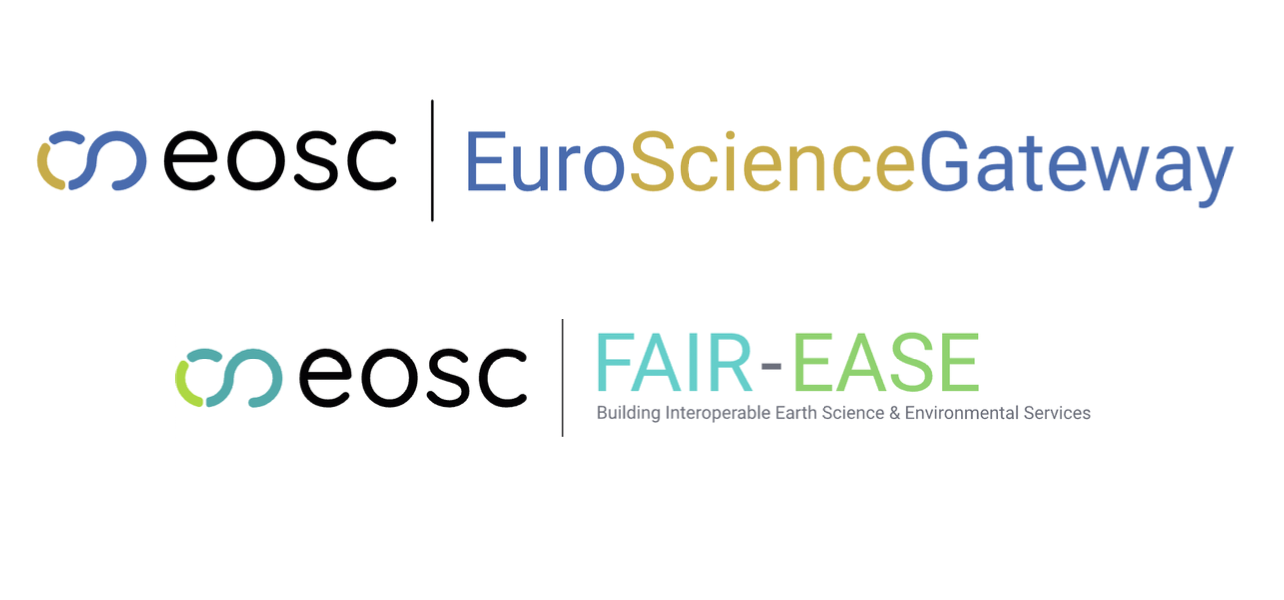Stronger together: FAIR-EASE and EuroScienceGateway join forces

Two Horizon Europe projects directed towards the development and deployment of the European Open Science Cloud (EOSC)—FAIR-EASE and EuroScienceGateway (ESG)—have agreed to closely cooperate over the next three years in order to extend the open source Galaxy platform for FAIR data analysis to a broader group of scientific user communities.
The cooperation will include shared compute resources, joint workshops, and a merging of tools and workflows from FAIR-EASE to be run via the distributed computing network being developed by the ESG project. The aim is to evaluate if FAIR-EASE’s Earth Analytical Lab (EAL) can be based on the ESG.
“Synchronising the work of ESG and FAIR-EASE is good news for the users of EOSC,” said Björn Grüning, project coordinator of ESG. “We believe that if ESG and FAIR-EASE combine our efforts we can achieve more for our users and utilise European resources more effectively. This is a way of working that the European Commission and the EOSC Association have been encouraging among the EOSC-related projects.”
In the past decade, many scientific domains have been transformed into data-driven disciplines relying on the exchange and integration of internationally distributed data. Exploiting this data is still a laborious and largely manual task, prone to losses and errors, and increasingly specialised beyond most users’ technical capabilities. FAIR practices are encouraged, but their adoption curve is steep. The needs for compute and data resources, tools, and application platforms are often domain-specific.
Many scientists struggle to navigate this intricate ecosystem. Generally, researchers do not possess the computing skills to effectively use the high-performance computing (HPC) or Cloud platforms they need. Thus, new approaches are needed to enable all researchers, with widely ranging digital skills, to efficiently use the diverse computational infrastructures available across Europe, for both asynchronous and interactive applications.
Alessandro Rizzo, project coordinator of FAIR-EASE, said: “The use-cases in ESG will work closely with those of FAIR-EASE, for example to create cross-discipline workflows between climate science, biodiversity studies and the earth sciences—creating, sharing and re-using tools and workflows in one platform. Moreover, we are planning joint user workshops and co-located yearly meetings to bring both projects closer together.”
EuroScienceGateway will leverage a distributed computing network and user-friendly web portal, facilitating access to compute and storage infrastructures across Europe as well as to data, tools, workflows and services that can be customised to suit researchers’ needs. At the heart of the ESG workflows will integrate with the EOSC-Core. Adoption, development and implementation of technologies to interoperate across services, will allow researchers to produce high-quality FAIR data, available to all in EOSC. Communities across disciplines—Life Sciences, Climate and Biodiversity, Astrophysics, Materials science—will demonstrate the bridge from EOSC's technical services to scientific analysis.
FAIR-EASE will customise and operate distributed and integrated services for observation and modelling of the Earth system, environment and biodiversity by improving their different components in close cooperation with user-communities and research infrastructures in their design and sustainable availability. The aim is to provide users with an easy and FAIR tool for discovery and access to environmental multidisciplinary and aggregated data-sets, as well as set up a virtual environment (EAL - Earth Analytical Lab) through web-based interfaces, predefined processing tools and on-demand data visualisation services for remote analysis and processing of heterogeneous data facilitating the cross-disciplinary collaboration.